Pro-Kremlin news outlet promotes homophobia with controversial video
Video ignited heated debate in online
Pro-Kremlin news outlet promotes homophobia with controversial video
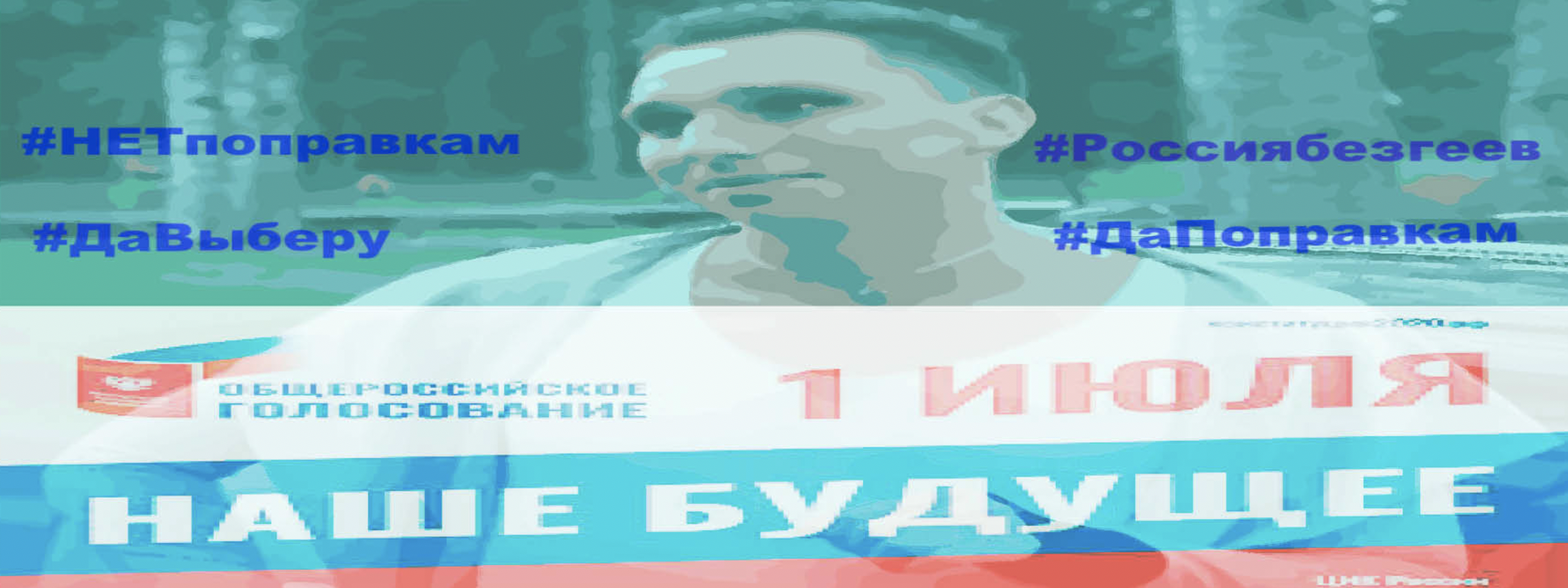
Video ignited heated debate in online forums ahead of July 1 referendum on constitutional amendments in Russia
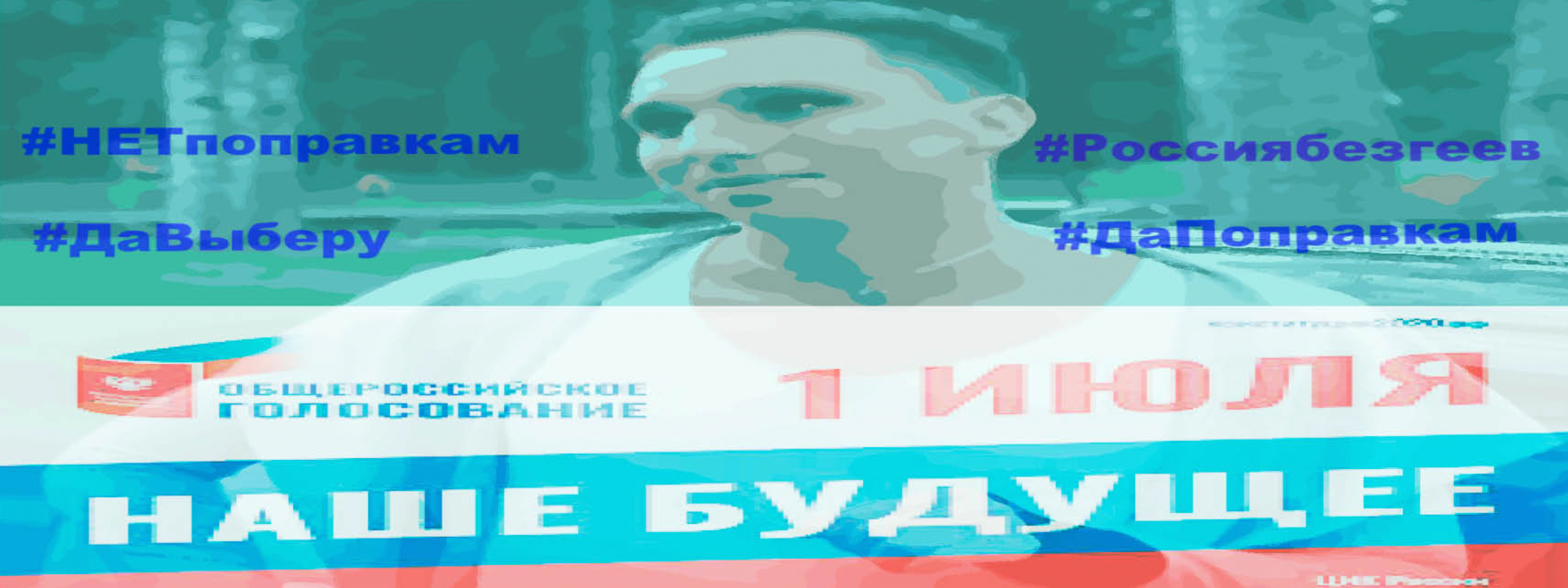
With the referendum on constitutional amendments approaching in Russia, pro-Kremlin actors aired a homophobic video clip in an attempt to gain voters’ support for the amendments. The propaganda video fueled engagement across social media, particularly with its implication that same-sex couple adoptions are inherently problematic. The video prompted opposing online campaigns in Russia, launched by supporters and opponents of the country’s LGBT community.
According to an independent research organization Levada, 56 percent of Russians have negative attitudes toward LGBT individuals, and 83 percent of Russians consider sexual relations between same-sex partners “reprehensible.” Furthermore, the foreign adoption of Russian children provokes strong feelings of nationalism for many Russian people: roughly half are against the adoption of Russian children by foreigners. Thus, pro-Kremlin actors are able to use it as a means of exacerbating these sentiments and, in this case, gaining support for the constitutional amendments. Given the widespread anti-LGBT sentiment in the country, pro-Kremlin actors seem intent to mobilize this base and a passive segment of the electorate through propaganda campaigns that target the country’s minority communities.
The video, posted by the Russian Federal News Agency (RIA FAN), advocates for amending Article 72 of the Constitution of the Russian Federation to define the institution of marriage “as a union of man and woman.” The amendment is one of a number of proposed constitutional amendments, including another that would reset President Vladimir Putin’s consecutive terms to zero as a means of bypassing term limits, thereby allowing him to remain president until 2036. The slate of amendments is currently scheduled to be put to a public referendum on July 1, despite the ongoing COVID-19 pandemic.
Russian commentators suggest three reasons why the Kremlin would insist on holding the referendum despite the growing number of COVID-19 cases in the country. First, the Kremlin prefers to hold a referendum before the socioeconomic situation worsens even more amid the pandemic as it could negatively affect the support for the proposed constitutional amendments. According to Russia Public Opinion Research Center VCIOM, as of June 26, 76 percent of Russians support the proposed constitutional amendments, which is contradicted by survey results published by Levada on June 22, which suggested that only 25 percent of public supported amendments. Second, current quarantine measures in Russia prohibit large public gatherings, allowing the government to avoid protests that may potentially erupt during the referendum. Last but not least, public trust to Vladimir Putin has decreased to 25 percent in May 2020 from its peak of 59 percent in November 2017, which his supporters fear may negatively affect the results of the referendum.
The RIA FAN video
On June 2, RIA FAN published a video to its social media accounts with the title, “Why the amendments to the Constitution are important.” The video depicts a hypothetical story in an orphanage in Russia in 2035, when a young man comes to adopt a boy. Together with orphanage staff, he takes a boy to present his adopted “mother,” a man who hands the child a dress. The boy is noticeably upset with the fact that his new mother is another man, to which the narrator says: “Would you choose such a Russia? Decide the future of the country: vote for the amendments to the Constitution.” Through such a homophobic lens, the video implied that same-sex marriages were undesirable, a sentiment Putin has echoed, including in stating “while I am president, there will be no ‘parent 1’ and ‘parent 2,’ only dad and mom.”
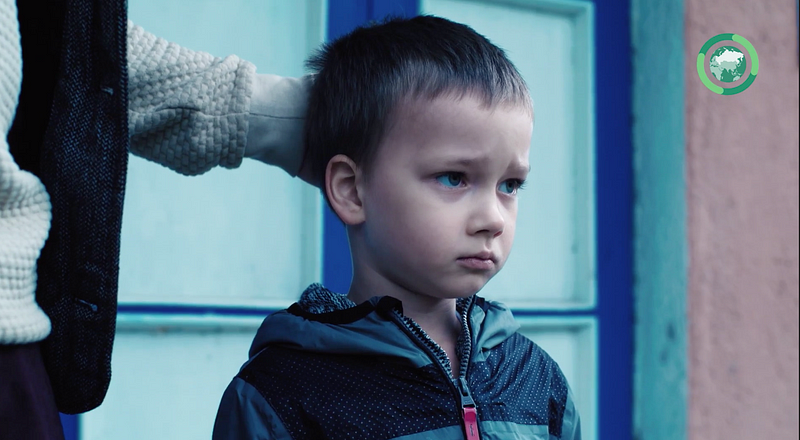
RIA FAN is a part of the media group Patriot, which is connected with the Internet Research Agency (IRA), the same entity that carried out an influence campaign against the United States during the 2016 presidential elections. The Moscow Times has suggested that the IRA rebranded itself as a network of 16 news websites and that RIA FAN is the hub of these websites. An investigation by Russian news website RBC found that RIA FAN had the same address as the IRA in Saint Petersburg. Furthermore, the board of trustees of Patriot is chaired by Putin’s close ally Yevgeny Prigozhin, who the United States indicted for manipulating the 2016 election and for providing significant funding to the IRA for its later interference in the 2018 U.S. midterm elections. RIA FAN actively covers the war in Syria, and its journalists are reportedly embedded with the Wagner Group, the Russian private military company fighting in Syria along with Assad’s forces.
On June 4, YouTube removed RIA FAN’s video for “violating YouTube’s policy on hate speech.” This is not the first time that Google and its affiliated companies have taken action against RIA FAN. In October 2017, Google News suspended RIA FAN news stories from its search results, including its previously published content. Later, in April 2020, Google blocked a RIA FAN account together with its associated YouTube account. Apart from Google and YouTube, Wikipedia also included RIA FAN in its spam list, making it so that RIA FAN links cannot be added as legitimate sources in the organization’s encyclopedia entries. Despite these restrictions, the video remains available on RIA FAN’s account on Russian social network VKontakte, where it had garnered over 2.5 million views as of June 15, 2020.
Two opposing social media campaigns
The video immediately sparked debate as to the Kremlin’s intention with creating and promoting it. LGBT group Stimul asked Russia’s Prosecutor General to pursue the video as extremist in nature, as the organization argued that the video incites hatred and hostility toward same-sex couples. It is unclear on what legal basis the group based its petition to the Prosecutor General.
Supporters of the LGBT community and LGBT adoption rights amplified the hashtag “#ДаВыберу” (#YesIChoose) on Twitter. The hashtag was used as a statement of willingness to “choose” Russia as a country where same-sex people can adopt a child. They further elaborated that children in Russian orphanages are sometimes susceptible to violence by the institutions themselves and demanded the state ban the RIA FAN video immediately. Multiple accounts also amplified the hashtag “#НЕТпоправкам” (#NoToAmendments) after launching it on June 3, one day after the release of the RIA FAN video. Many accounts used the two hashtags in the same tweet.
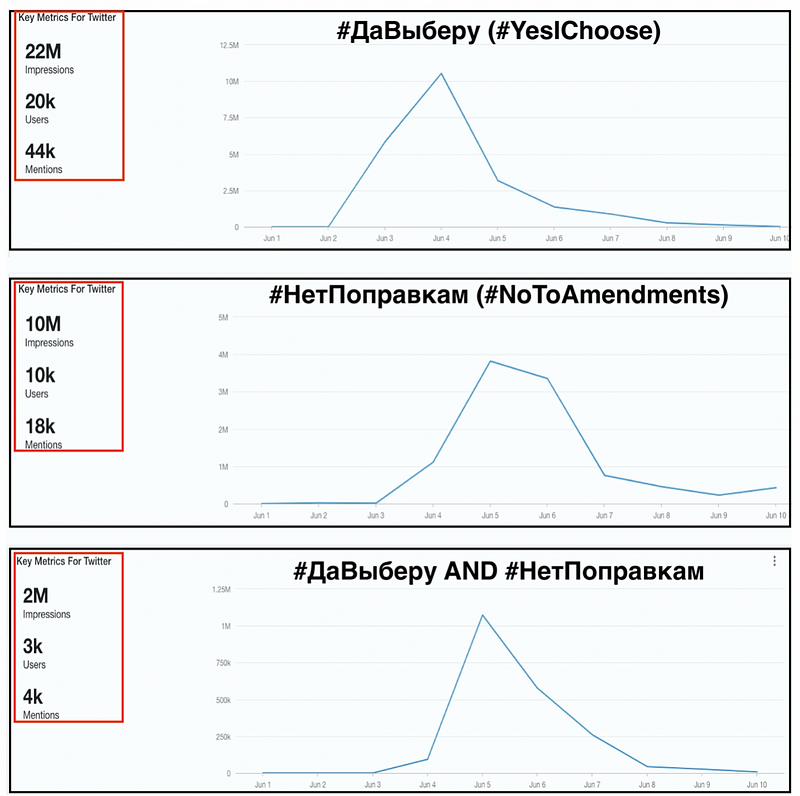
Kremlin proponents turned out to be divided over how to react to the public outcry over the video. Whereas Kremlin-funded outlets used the occasion to amplify anti-U.S. propaganda narratives, others used the United States legalization of same-sex marriage to justify their objection to gay marriage domestically.
Ria Novosti and Sputnik published an identical article, written by pro-Kremlin commentator Piotr Akopov, in which he claimed that the video did not contain homophobia at all and was not directed against the LGBT community. The author also slammed the United States, where parents supposedly “impose gender change on their children,” and claimed that Russia is far from having similar problems. On the other hand, Nilokai Stolyarchuk, the head of the Patriot media group, used the U.S. as a reference point and role model to lambast Russian opposition figures who have criticized the Kremlin for homophobia. He argued that some states in the U.S. still allegedly impose restrictions on the “promotion” of same-sex unions and that, until 2013, the Defense of Marriage Act, which defined marriage as “a union between one man and one woman,” was in force in the United States.
Opponents of the LGBT community, meanwhile, launched and amplified the hashtags “#Россиябезгеев” (#RussiaWithoutGays) and “#ДаПоправкам” (#YesToAmendments). Both hashtags were launched on June 4, 2020, in reaction to the pro-LGBT and anti-amendment hashtag campaigns detailed above.
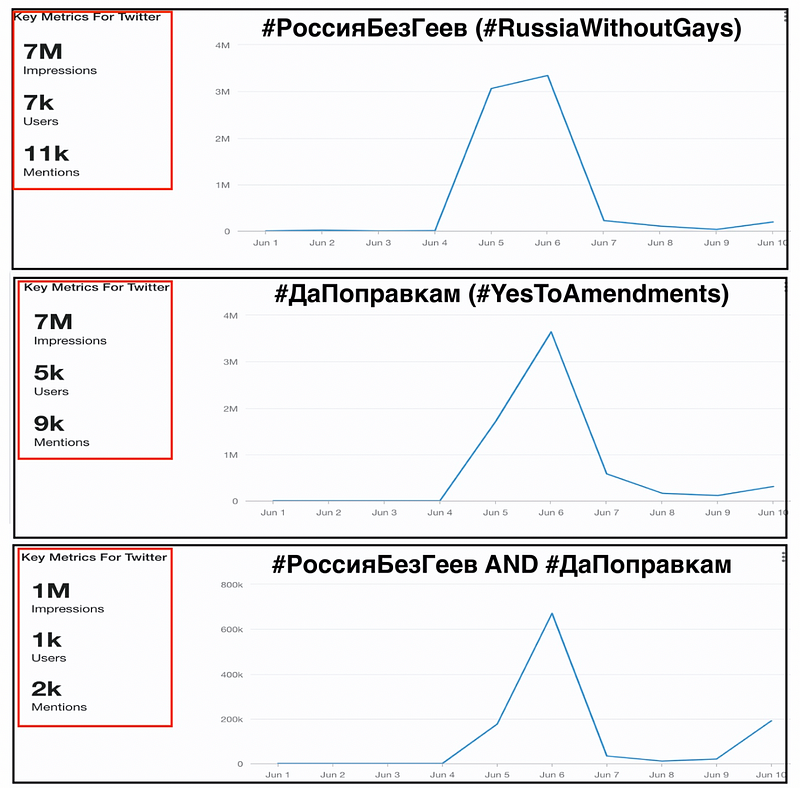
The RIA FAN video can be seen as an example of a political application of anti-LGBT rhetoric used to galvanize like-minded voters ahead of the referendum. Pro-Kremlin actors know that this topic resonates with a significant part of Russian society and are likely trying to ignite public sentiment as a means of swaying the referendum in the desired direction. However, Russian activists are pushing back against homophobia, and, in this case, the pro-LGBT online campaign was more successful than the counter campaign. Political homophobia in countries where sentiment is evenly divided, such as Russia, risks further polarizing society, which in turn can increase societal tension ahead of the referendum on constitutional reform.
Givi Gigitashvili is Research Assistant, Caucasus, with the Digital Forensic Research Lab.
Follow along on Twitter for more in-depth analysis from our #DigitalSherlocks.

